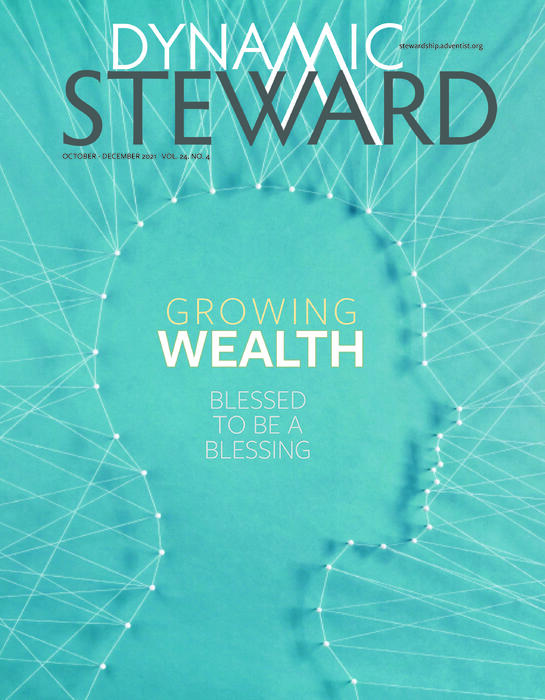Our call to faithful stewardship is grounded in theological reasons: God is the Owner and Provider of every good thing, and we are His stewards. Nonetheless, there is a clear relationship between a perception of trust and accountability and rates of giving among members. This is the rationale behind the three leading measures of the GC Stewardship Ministries about accountability and transparency:
“Stewardship leaders encourage and work together with the leadership of the church to establish an internal control system, comply with the Use of Tithe guidelines, assist in ensuring that regular financial information is provided to all members, and engage in other actions that contribute to building trust.”
Our drive to participate in building up trusted leaders and trustworthy church communities is rooted in both the Scriptures and the writings of Ellen White. The apostle Paul, while championing generosity and solidarity, appeals for church leaders to demonstrate a high level of accountability and trustworthiness: “Rather, we have renounced secret and shameful ways; we do not use deception, nor do we distort the word of God. On the contrary, by setting forth the truth plainly we commend ourselves to everyone’s conscience in the sight of God” (2 Cor. 4:1, 2, NIV).1 In 2 Corinthians 8:19-21 he explicitly mentions the appropriate rule of conduct for the management of finances: Honor the Lord, serve others, avoid criticism, be accountable to God, be accountable to man. Paul not only taught believers about their sacred responsibility to give, but also that their gifts were to be managed as a sacred trust. This is the guiding principle of this resource material.
Ellen G.White is adamant about the necessity of trustworthiness for those involved in ministry: “Those in responsible places are to act in such a way that the people will have firm confidence in them. These men should not be afraid to open to the light of day everything in the management of the work.”2 She testifies about the negative effect of mistrust on the giving of church members.3 At the same time, she adopts a well-balanced position when she claims that the absence of trust is not an acceptable justification for unfaithfulness. When trust is shaken, the inclination to giving is weakened; therefore, it is our responsibility to remove all stumbling blocks in the path of those we lead.
A contemporary study by Smith, Emerson, and Snell (2008) explores the factors influencing Christians’ giving in the United States. They recommend, among other things, “transparency, accountability, and institutionalized credibility” within church organizations to foster an increase in giving. Trust accelerates faithfulness. It creates a conducive atmosphere for sacrificial giving to happen.
The manual “The Financial Equation,” commissioned by Adventist Stewardship Ministries, provides a tool for stewardship educators and others who would like to assist the local church in building trust. This resource material provides some basic guidelines for the local church to grow as a trusted institution. We express our appreciation to Russell Raelly, the author, for sharing his expert knowledge about managing church finances with us in a captivating and accessible language.
As we endeavor to fulfill our role as a trust builder, let us be encouraged by these words from the apostle Paul: “We have done so, relying not on worldly wisdom but on God’s grace” (2 Cor. 1:12, NIV).
1Texts credited to NIV are from the Holy Bible, New International Version. Copyright © 1973, 1978, 1984, 2011 by Biblica, Inc. Used by permission. All rights reserved worldwide.
2Ellen G. White, Manuscript Releases (Silver Spring, Md.: Ellen G. White Estate, 1993), vol. 13, p. 198.
3Ibid., pp. 1-5.

